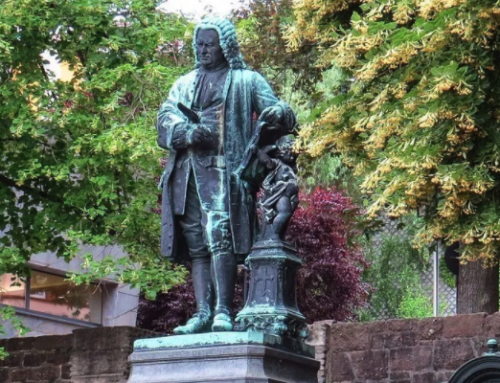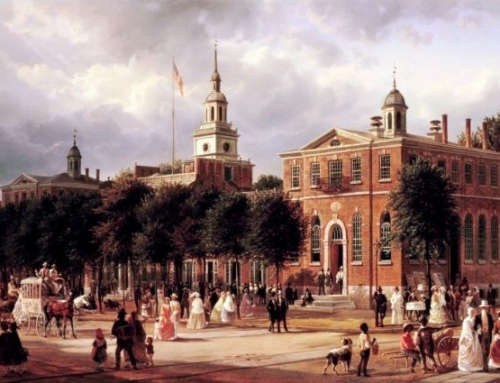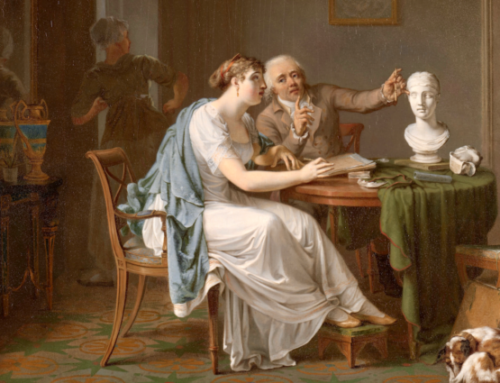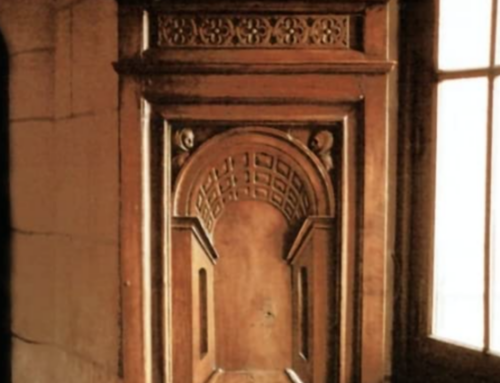 The rise of Rome from a crossroads town to world mastery, its achievement of two centuries of security and peace from the Crimea to Gibraltar and from the Euphrates to Hadrian’s Wall, its spread of classic civilization over the Mediterranean and western European world, its struggle to preserve its ordered realm from a surrounding sea of barbarism, its long, slow crumbling and final catastrophic collapse into darkness and chaos—this is surely the greatest drama ever played by man; unless it be that other drama which began when Caesar and Christ stood face to face in Pilate’s court, and continued until a handful of hunted Christians had grown by time and patience, and through persecution and terror, to be first the allies, then the masters, and at last the heirs, of the greatest empire in history.
The rise of Rome from a crossroads town to world mastery, its achievement of two centuries of security and peace from the Crimea to Gibraltar and from the Euphrates to Hadrian’s Wall, its spread of classic civilization over the Mediterranean and western European world, its struggle to preserve its ordered realm from a surrounding sea of barbarism, its long, slow crumbling and final catastrophic collapse into darkness and chaos—this is surely the greatest drama ever played by man; unless it be that other drama which began when Caesar and Christ stood face to face in Pilate’s court, and continued until a handful of hunted Christians had grown by time and patience, and through persecution and terror, to be first the allies, then the masters, and at last the heirs, of the greatest empire in history.
But that multiple panorama has greater meaning for us than through its scope and majesty: it resembles significantly, and sometimes with menacing illumination, the civilization and problems of our day. This is the advantage of studying a civilization in its total scope and life—that one may compare each stage or aspect of its career with a corresponding moment or element of our own cultural trajectory, and be warned or encouraged by the ancient aftermath of a modern phase. There, in the struggle of Roman civilization against barbarism within and without, is our own struggle; through Rome’s problems of biological and moral decadence signposts rise on our road today; the class war of the Gracchi against the Senate, of Marius against Sulla, of Caesar against Pompey, of Antony against Octavian, is the war that consumes our interludes of peace; and the desperate effort of the Mediterranean soul to maintain some freedom against a despotic state is an augury of our coming task. De nobis fabula narratur: of ourselves this Roman story is told.
The Imaginative Conservative applies the principle of appreciation to the discussion of culture and politics—we approach dialogue with magnanimity rather than with mere civility. Will you help us remain a refreshing oasis in the increasingly contentious arena of modern discourse? Please consider donating now.
Note:
Durant, Will (2011-06-07). Caesar and Christ. Simon & Schuster, Inc.. Kindle Edition.
The featured image is “View of the Colosseum and The Arch of Constantine” (1740s) by Antonio Joli (1700–1777) and is in the public domain, courtesy of Wikimedia Commons. It has been brightened for clarity.







Leave A Comment